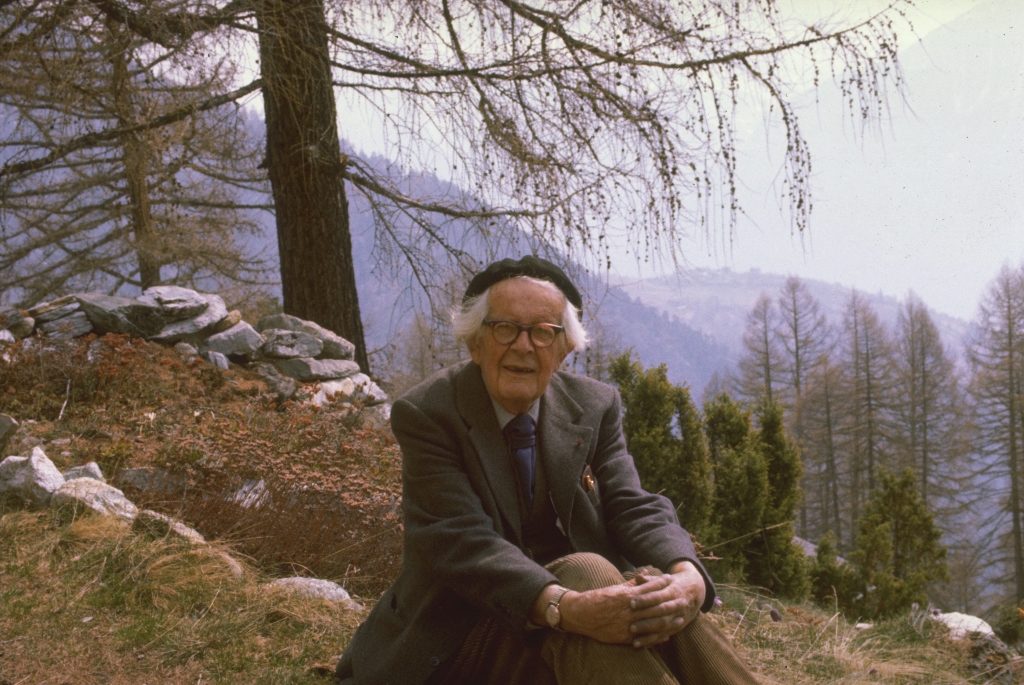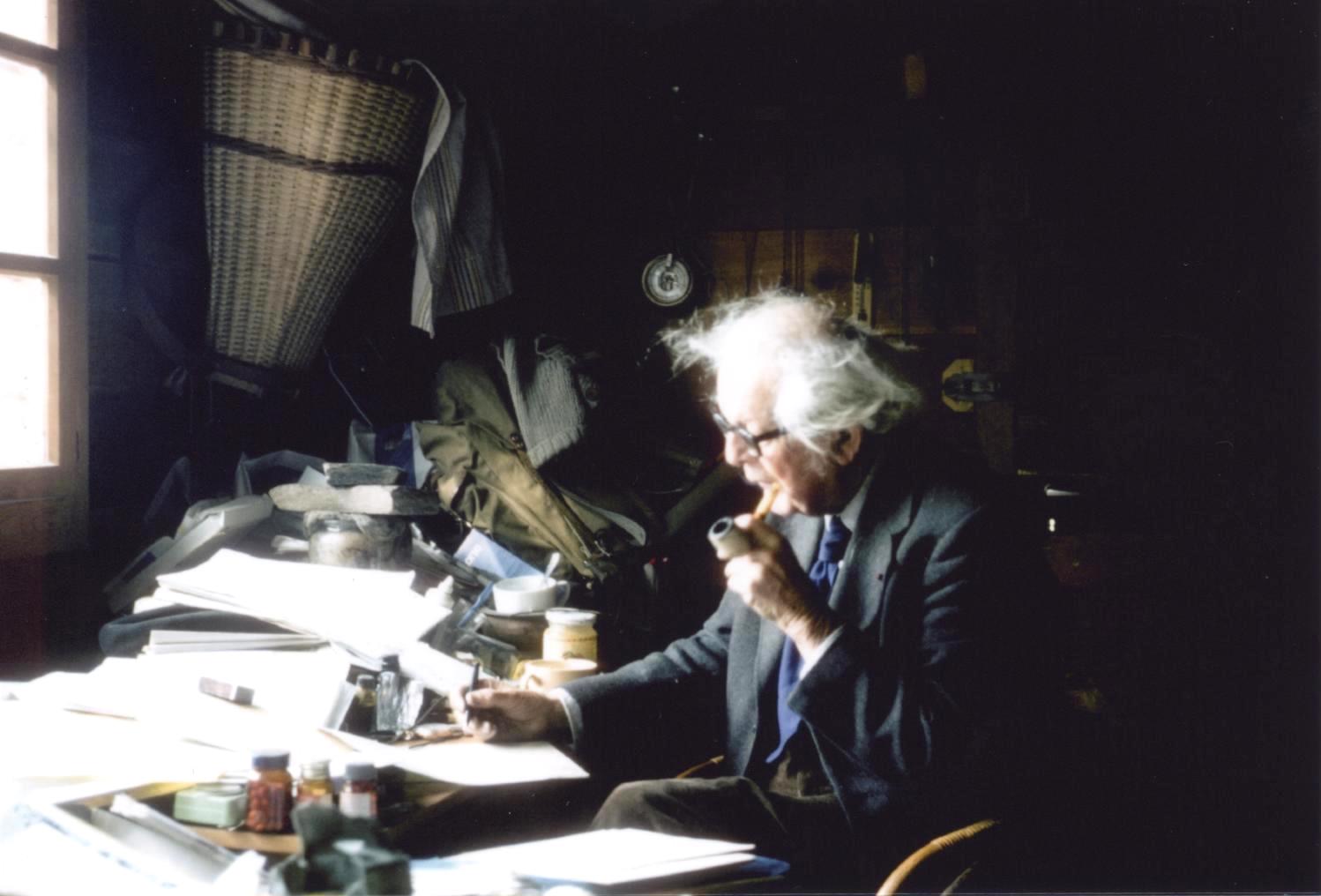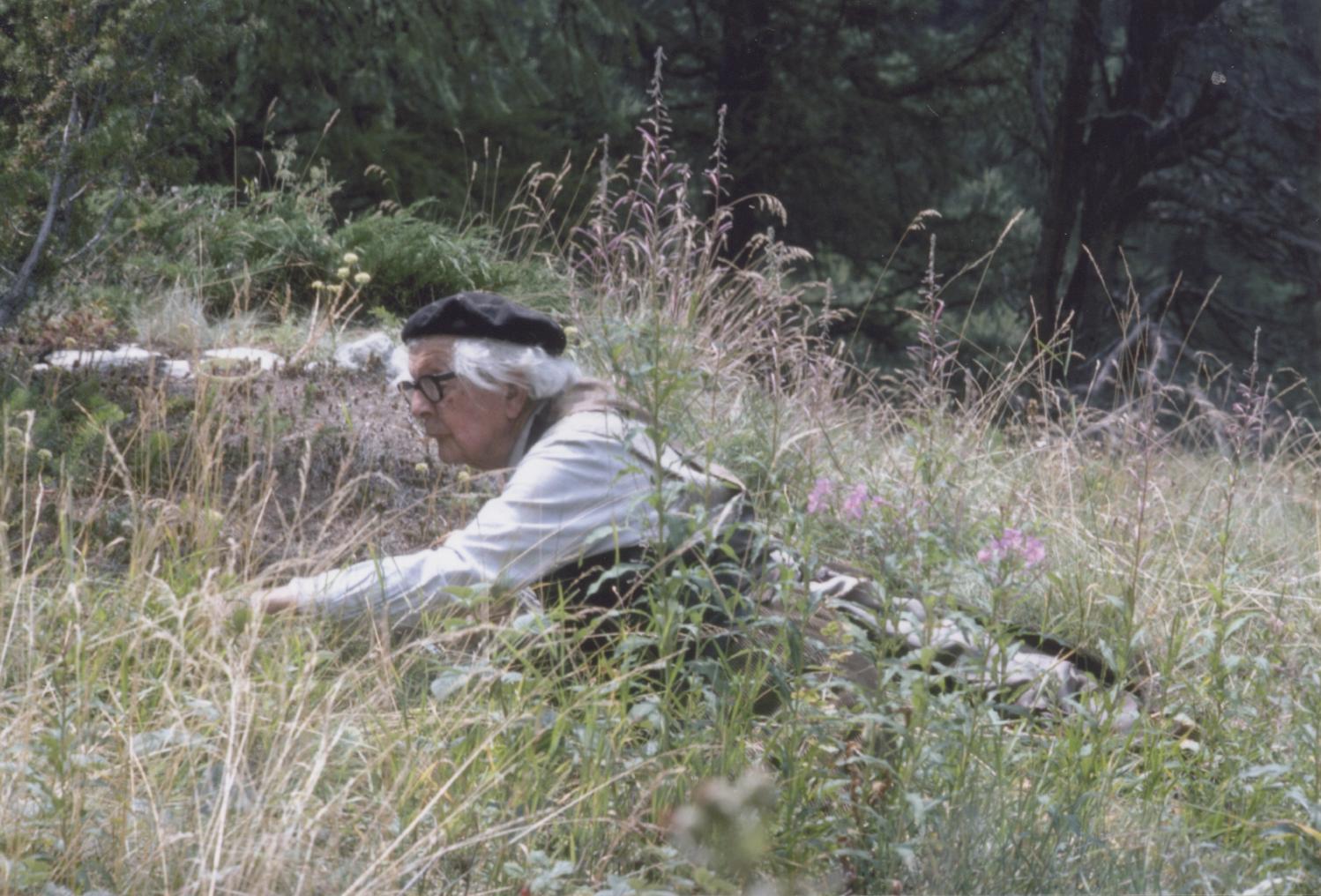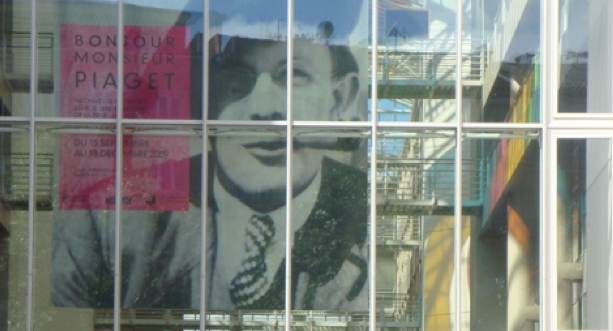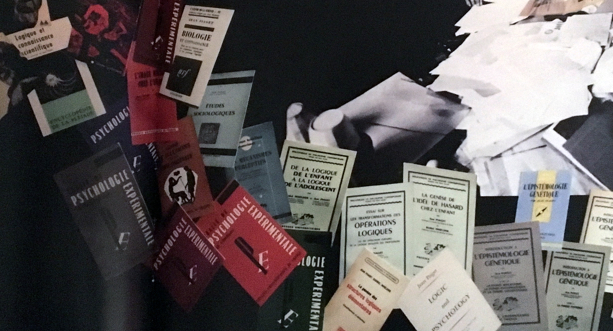“The deepest tendency of any human activity is the movement towards equilibrium.”
Jean Piaget with the students of the Rousseau Institute in Excenevex (France), July 1921
Travelling was an essential ingredient of Jean Piaget’s life, far from the image of the scientist locked up in his office. Malacological hikes, lecture tours, mountain holidays, walking and writing his work, were always the best allies for conservation. We offer here some windows to the less known journeys of a great traveller.
- Accueil
- >
- Travelling…
- >
- …with Jean Piaget
Jean Piaget’s trips
Saint-Cast (Brittany)
During his holidays in Brittany with his maternal family, the Jacksons, little Jean never missed a chance to cultivate his scientific curiosity: between games he dredged on the coast to collect molluscs, the direct ancestor of his malacological expeditions in the Alps and the Jura lakes.
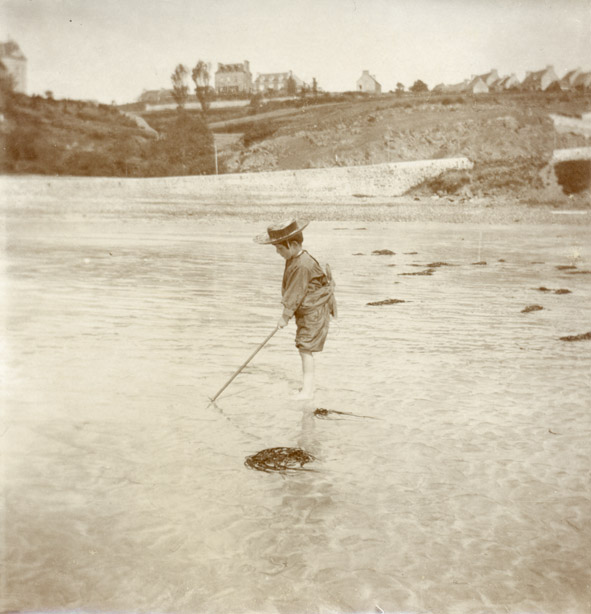
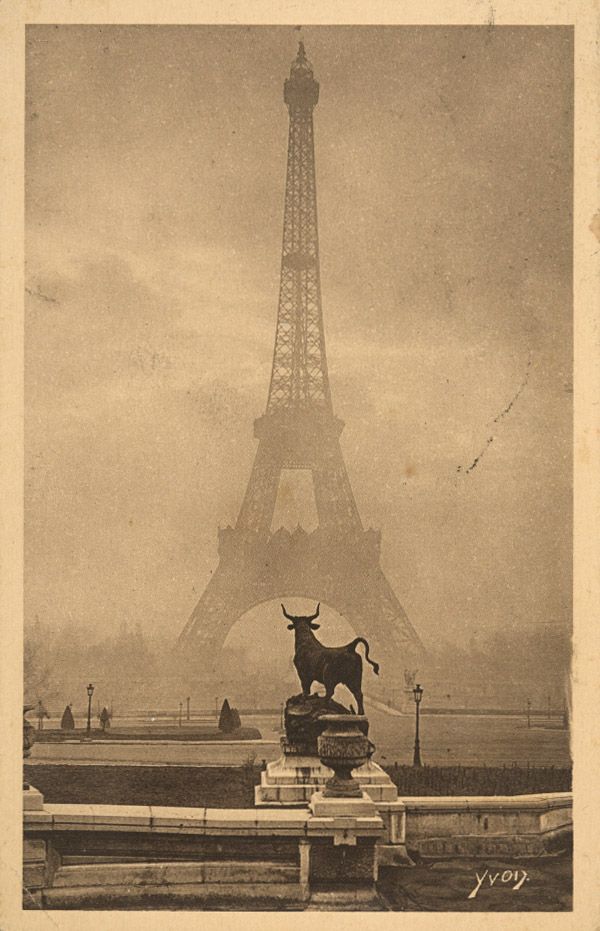
Studies in Paris
In November 1919, Piaget moved to Paris. There he found much material for work and reflection, attending several courses at the Sorbonne and also in hospitals, given by philosophers and psychiatrists. This was a period of training and of invention at the same time. Under the direction of Dr. Théodore Simon, he devoted himself to the standardization of psychological tests and had the opportunity to practice at the École de la Grange-aux-Belles, where he developed his clinical method for interviewing children, in September 1920. Much of his future publications will be based on this strategy of empirical inquiry.
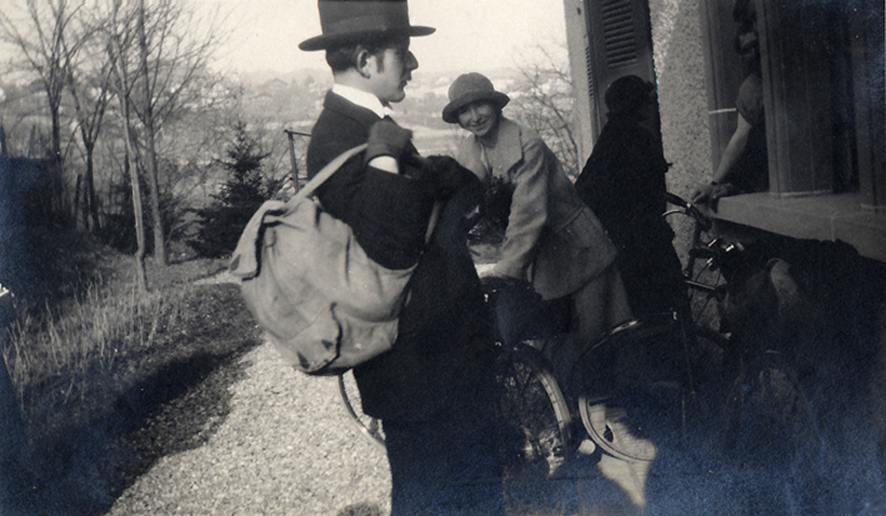
Honeymoon biking
April 1923… Jean Piaget married Valentine Châtenay, granddaughter of the President of the Swiss Confederation, Paul Cérésole. After the celebration of the wedding in Lausanne, the couple got on their bicycles to go for their honeymoon in Valais.
Holidays with
I. Meyerson
In September 1925, the doctor and psychologist Ignace Meyerson, who was very close to the Piaget family, went to spend about ten days’ with them in a villa in Salvan les Granges.
Davos International Meeting
In the late 1920s, to confront growing tensions in Europe, intellectuals organized a series of conferences in Davos, Switzerland, with the aim of a French-German approach. Jean and Valentine Piaget participated in March 1928 and met various French and German thinkers and scholars, including Albert Einstein.
At the Yale Congress
In early September 1929, Piaget made its first intercontinental voyage on a transatlantic ship. He attended the 9th International Congress of Psychology at Yale University, USA, where he met psychologists such as Charlotte Bühler, Kate Wolf, Kurt Lewin, Arnold Gesell. Among them was Alexandre Luria, who recommended Vygotski’s work.
Family vacations
From 1925 to 1940, the Piaget family travelled to the mountains to rest during the holidays. For Christmas, in 1929, they were in Lens sur Granges, in the Valais region.
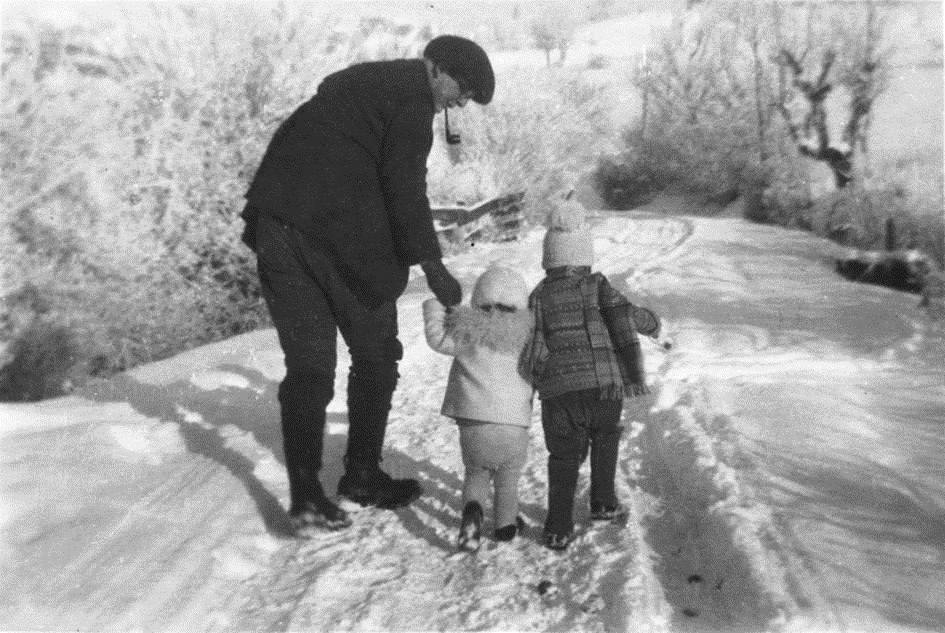
Piaget walking on a snowy path with Lucienne (left) and Jacqueline (right).
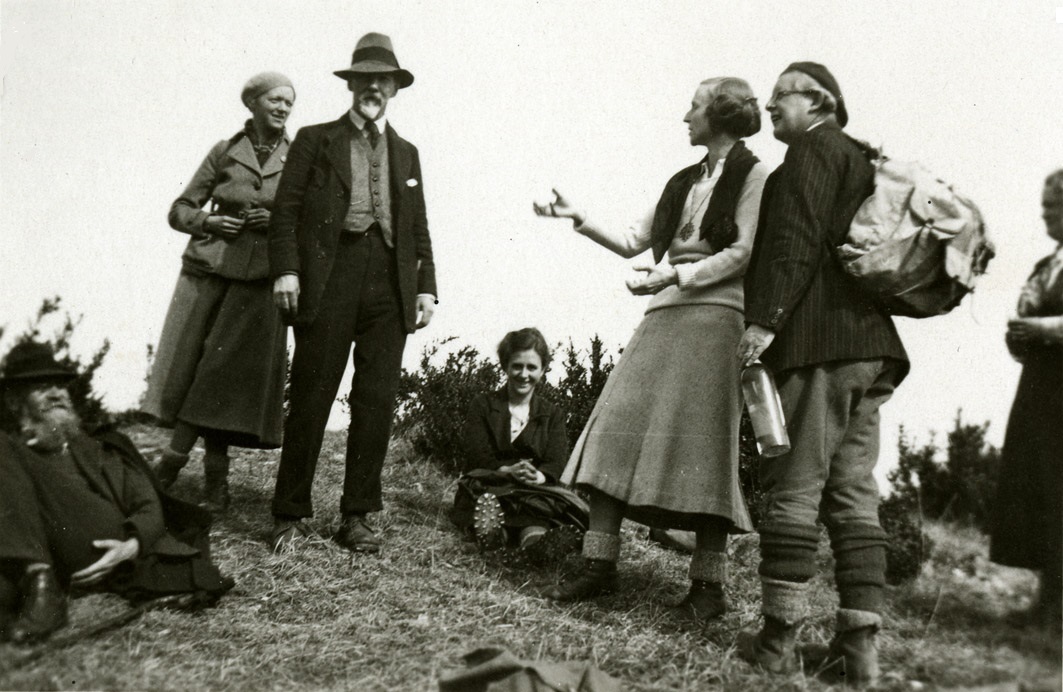
March 1935, La Plaine-aux-Rocailles From left to right, Pierre Bovet, X, Edouard Claparède, X, Valentine Piaget, Jean Piaget, Alina Szeminska.
The Rousseau Institute’s tours
Since he joined the Jean-Jacques Rousseau Institute of Educational Sciences, in October 1921, Piaget has participated fully in the life of this organisation. This included an intense social life around a group of friends, parties and excursions. The mountains surrounding Geneva and the lakes were the privileged places for the establishment of ties of friendship that strengthened professional relations between the different actors, especially between teachers and students.
Harvard
In 1936, Piaget was awarded with an Honorary Doctorate in Literature from Harvard University. The argument for the nomination was the use of his clinical method in the field of occupational psychology. He traveled with his wife Valentine, and this photo was taken upon arrival.

Probably with a representative from Harvard (left), a former student of the Institute, Eugène Lerner (center), and his wife Valentine, upon arrival in Manhattan.
Paris under occupation
Since the late 1930s, French psychological and philosophical societies have wanted to listen to Piaget. After several failed attempts, Henri Piéron invited him to the Collège de France. Piaget went there secretly in May 1942, and he observed the daily life of a capital transformed by the occupation. There he met many friends and gave a series of lectures that were published in 1947 in the volume entitled Psychology of Intelligence.
Beirut: UNESCO
In 1948, as part of his mission on behalf of UNESCO, Piaget attended the Beirut conference as an observer. He established a friendly relationship with the first director of UNESCO, the English biologist Julian Huxley.
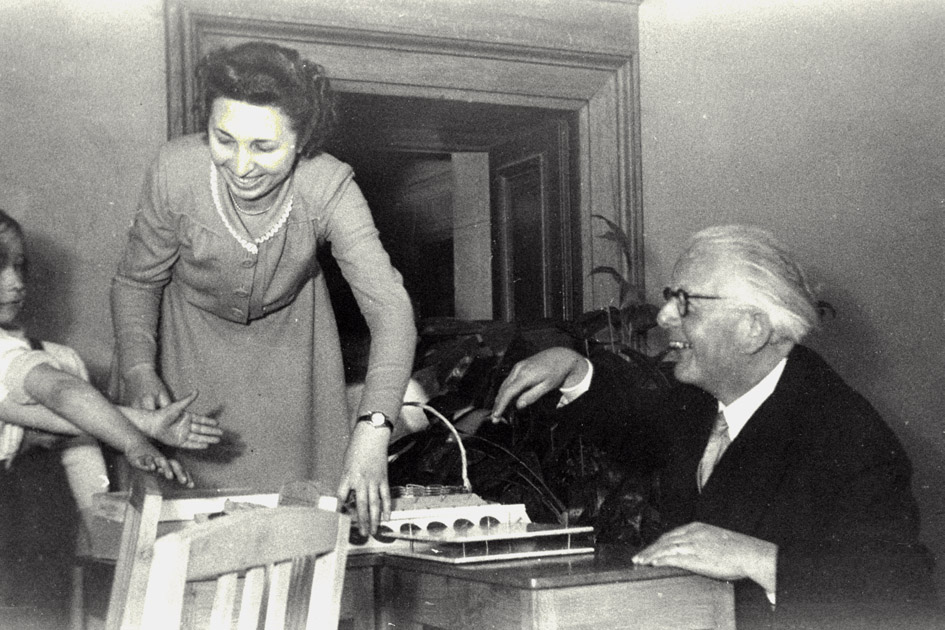
Lyon Congress
In April 1949, Piaget was invited to Lyon by the organisers of the Congress of Nursery School Teachers. Already familiar with travelling to France, he went there to give a lecture on the notion of number in children, as part of the initiation to calculus.
Rio de Janeiro
While the reputation of the Rousseau Institute had grown under the influence of Hélène Antipoff’s work in Brazil, Piaget’s research had also produced echoes since the 1920s. As a result, Piaget was invited to Rio de Janeiro in 1950 to receive an honorary doctorate, the first in Latin America.
New York
The trips also serve to develop and reinforce networks, for example for funding applications. In March 1953, the meeting with the directors of the Rockefeller Foundation in New York was part of a long process of requests for financial support that led to the creation of the International Center for Genetic Epistemology in 1955, an intellectual and multidisciplinary adventure that lasted until Piaget’s death in 1980.
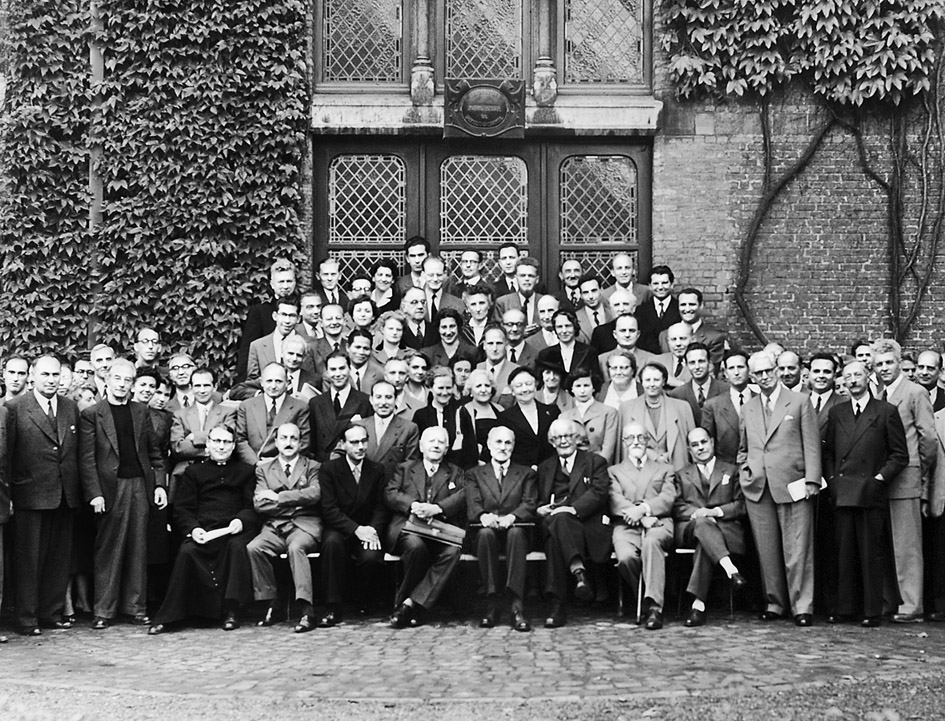
Group photo, sitting in the middle (from left to right): Albert Michotte, Henri Piéron and Jean Piaget.
Leuven Congress
From the early 1950s, Piaget, along with his friends Albert Michotte and Henri Piéron, contributed to the organisation of the French-speaking Association of Scientific Psychology. In July 1953, this institution held its second congress in Leuven, bringing together several actors in experimental psychology from Belgium, France and Switzerland.
Moscow
In 1953, Stalin’s death led to the transformatiion of the soviet field and, the following year, the authorities sent a delegation of psychologists to the Montreal Congress, where Piaget was elected president of the International Union of Psychology (IUPsyS). In 1955, a delegation composed by Piaget, Paul Fraisse and René Zazzo traveled to Moscow. Piaget then published his impressions of the trip in an article in the International Social Science Journal (Vol. 8, 1956).
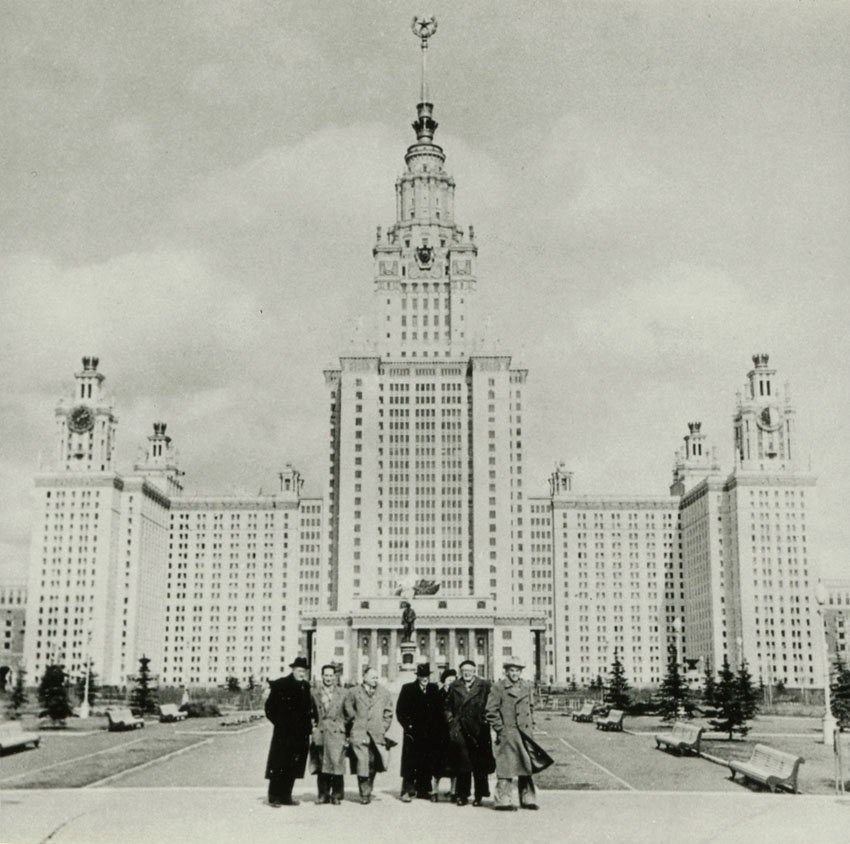
From left to right: X, René Zazzo, Paul Fraisse, Alexis Leontiev, X, Piaget and Alexandre Luria, in front of Lomonossov University.
Oslo
Piaget made his first trip to Oslo in 1953 to participate in Arne Naess’ science research. In the summer of 1961, he went there for the second time to receive an honorary doctorate from the University of Oslo.
Ljubljana
Piaget did not hesitate to develop collaborations with Eastern European countries, such as Yugoslavia, where he participated in the International Congress of Applied Psychology in August 1964.
Edimburgh
Piaget’s ideas were also of great interest to physicians, who invited him to the Sixth Congress of the International Association of Child Psychiatry and Related Professions, in July 1966. There he gave a lecture on the intellectual development of the adolescent.
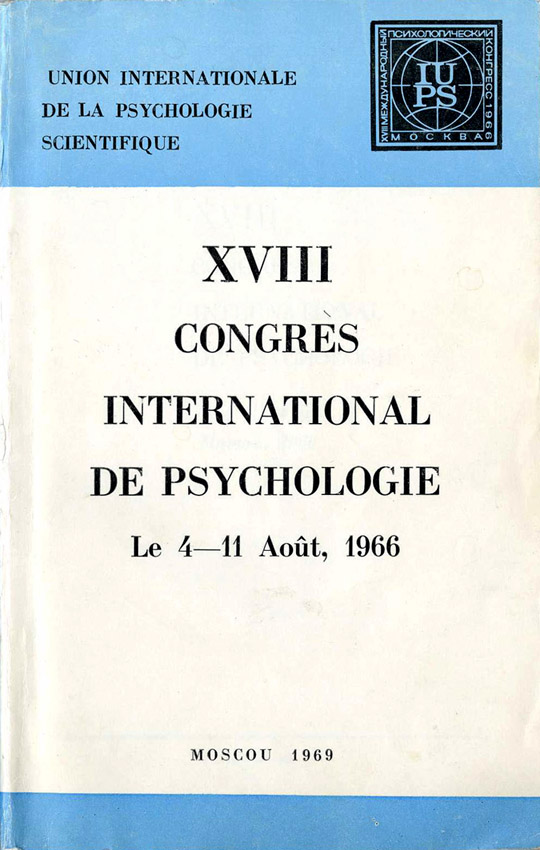
Moscow Congress
At the time of the Cold War, the organization of the 18th International Congress of Psychology in Moscow by Piaget, Leontiev and Luria demonstrated that science transcends political boundaries. Piaget was received as guest of honour, and was therefore in charge of the opening lecture and the conclusions of the symposium.
Sassari
Invited by his friend Daniel Bovet, Nobel Prize winner in Physiology, Piaget spoke in the International Congress, that took place in May 1967, about the current trends in research on learning and memory. He presented the research carried out in Geneva, showing that the development of memory is linked to the development of intelligence, a study that was published the following year, in 1968.
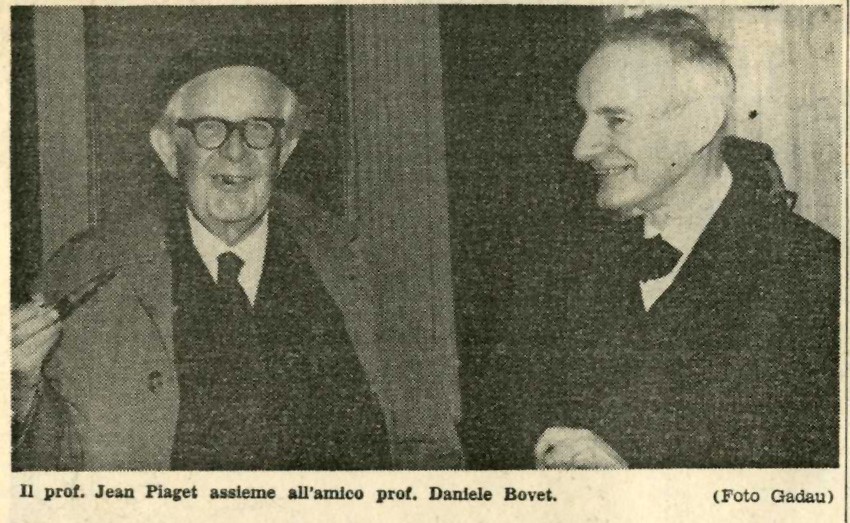
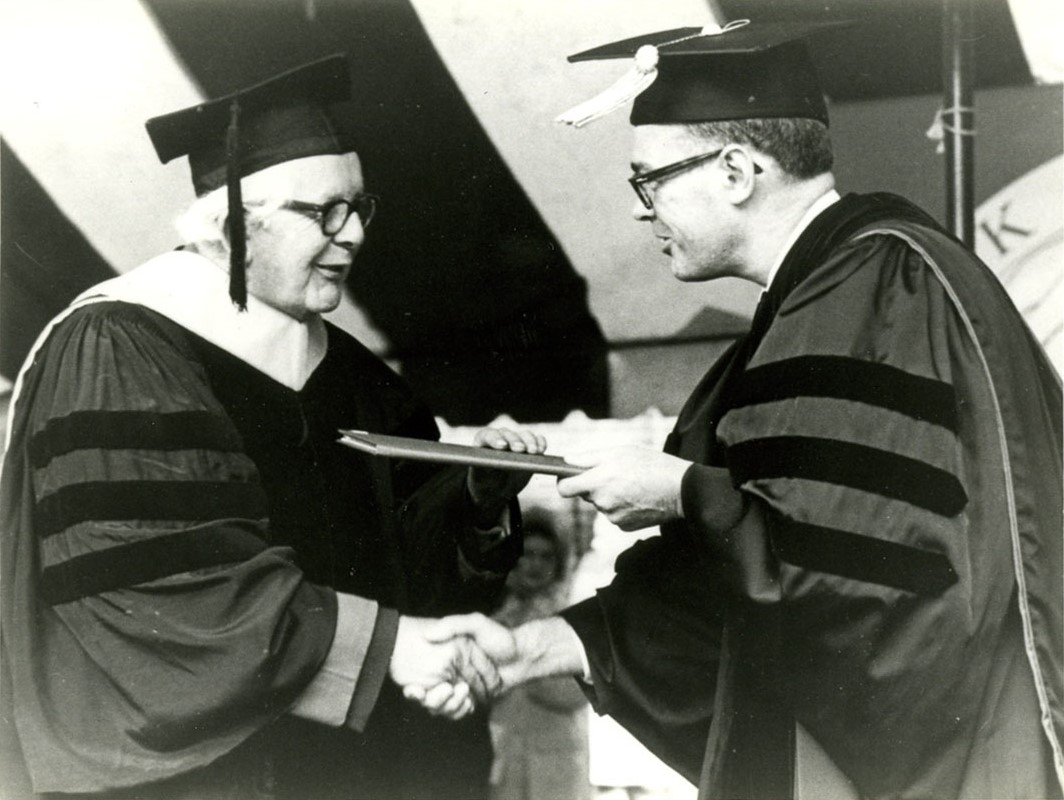
Photo: Clark University
Worcester (USA)
The collection of honorary doctorates – more than thirty – was usually combined with lectures on the current state of research at the Rousseau Institute. In this photo from 1968 Piaget was awarded with an honorary doctorate from Clark University.
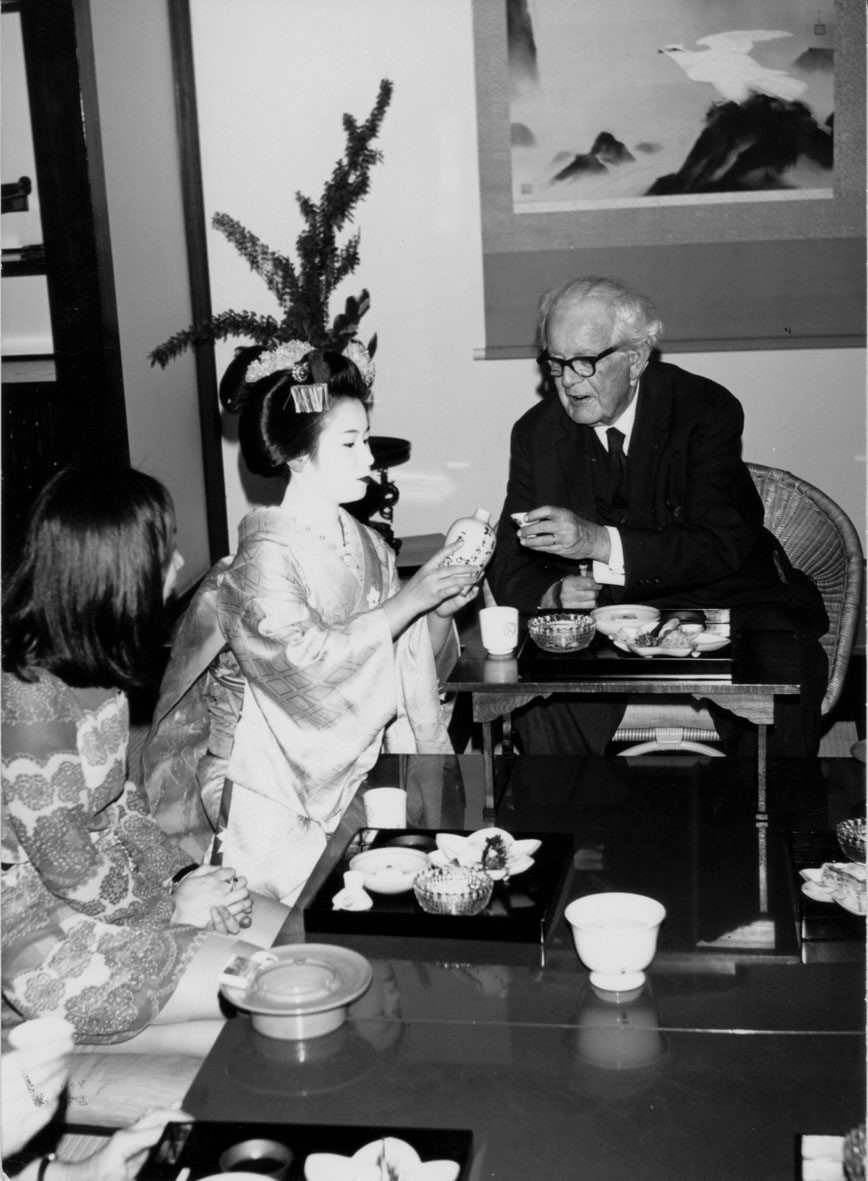
Kyoto
In a new international recognition, Piaget was invited to Japan in 1971. There, the Japanese Psychological Society unanimously honored him. He attended this trip with Bärbel Inhelder and followed the local traditions. Here, the tea ceremony.
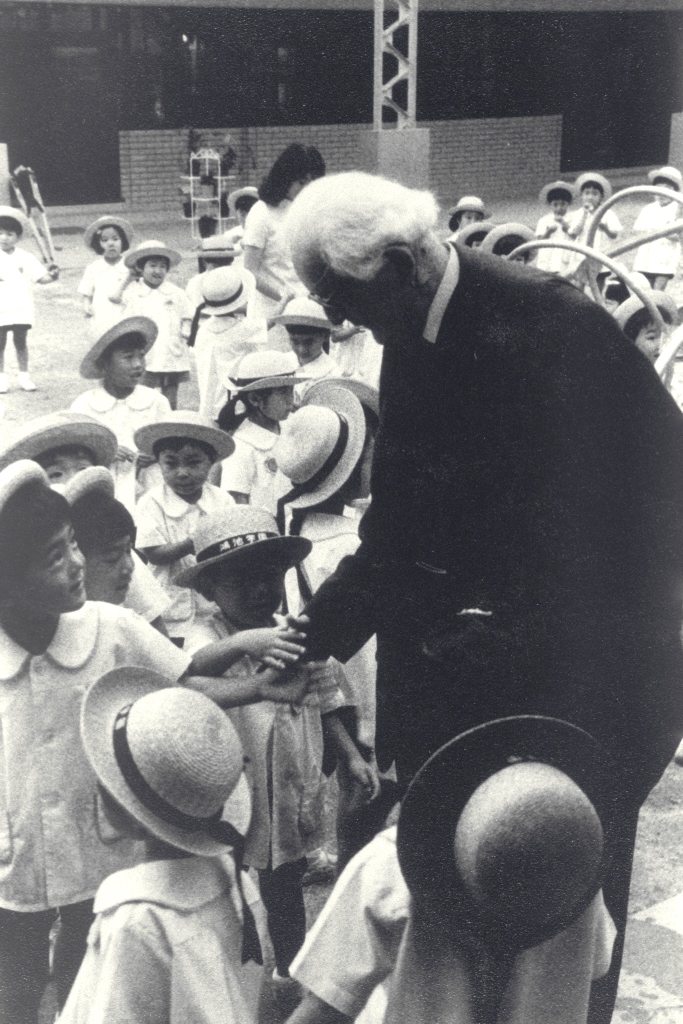
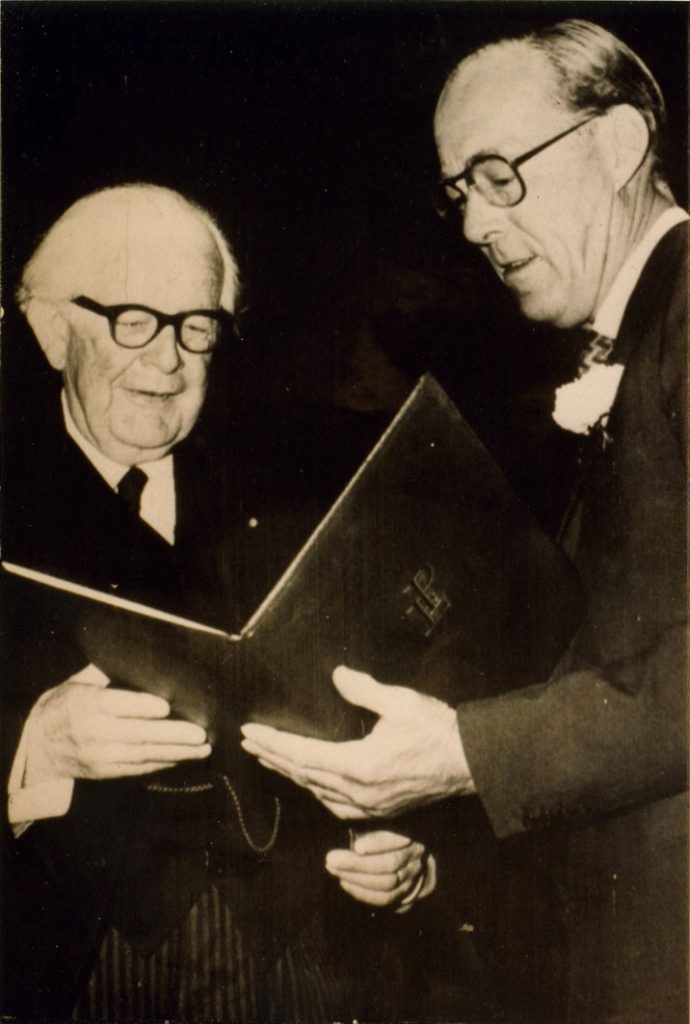
Amsterdam : Erasmus Award
Among the many prestigious awards that Piaget has received throughout its career, the Erasmus Prize is particularly noteworthy, because it highlights his contribution, not only to science, but also to European culture.
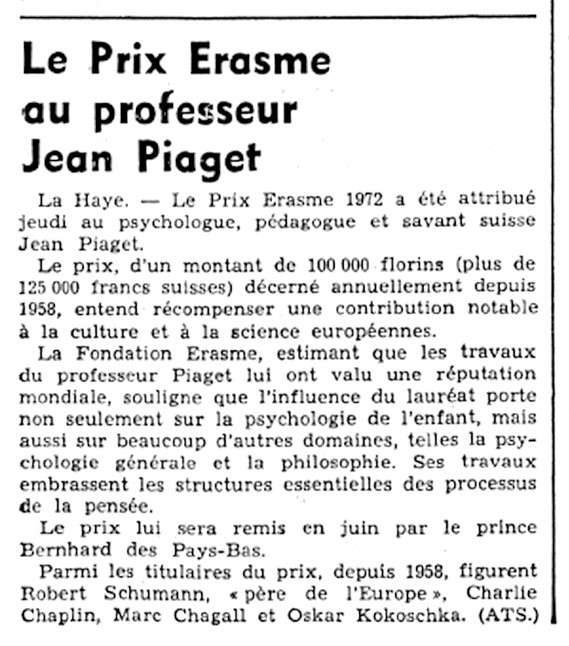
Ausserberg,
Villa discussions
During the academic year, Piaget developed an intense social activity, which involved courses, meetings, conferences, student supervision and daily writing work. On the other hand, during the holidays, and particularly in the summer, after the Second World War, he used to retire to the mountains for two or three months to work on his work, in solitude. However, the solitary work in this sort of chapel, the Piaget chalet in Ausserberg, in the Valais, was complemented by carefully selected meetings.
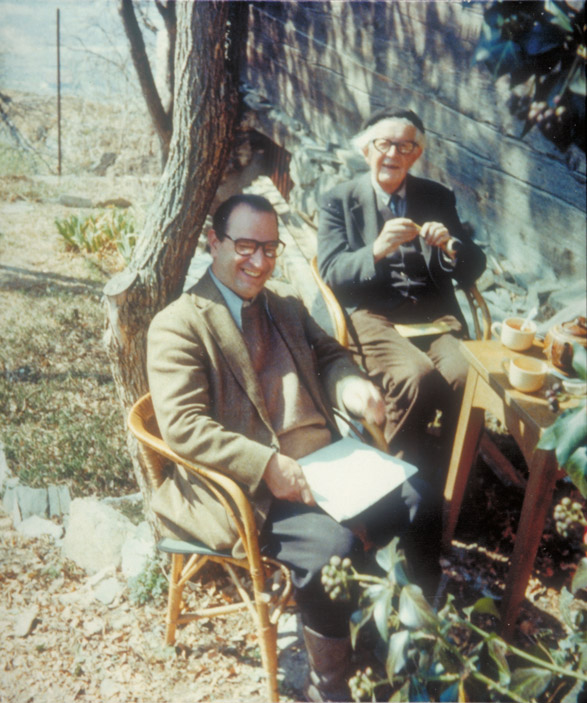
Piaget con Rolando García, 1975.
